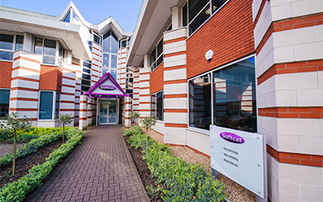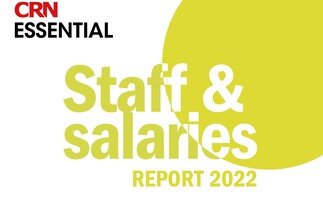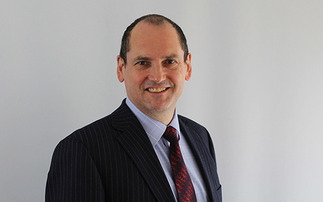We give you a sneak peek of a major new report profiling the European channel's biggest and brightest players
Our belief when CRN launched the Channelnomics Europe brand in 2014 was that channel firms need to start operating with far more consideration for the world beyond their national borders. For resellers and MSPs, both their end-user customers and their vendor partners wish to work with companies that can offer a consistent service across a range of territories and markets.
It is that same conviction that, later this month, will see us launch the first iteration of The European Elite, a major new report dedicated to defining and mapping the most important channel firms from across the breadth of Europe - covering everything from Svalbard to Seville, and from Tblisi to Tipperary. This report will contain detailed profiles of 200 Elite players, as well as 125 Ones to Watch and, in addition, summary information on the Best of the Rest - covering a further 575 firms. This means that a total of 900 companies will be featured.
The internet and cloud computing models have made expanding an enterprise internationally easier than ever, and moving into overseas markets is now a realistic prospect even for small businesses. And those companies - especially the smaller ones - would rather work with a single trusted partner than with a ragbag of differing IT providers across the world.
Similarly, many vendors would prefer to focus on core channel partnerships that allow them to cover as many geographic and vertical markets as possible. If they want to prosper in today's market, VARs would do well to consider how they can take what they are best at and recreate it on a bigger stage.
Which does not necessarily mean they need to invest tens of millions of euros (or pounds, or koruna, or złoty) in staffing an office in every major city across the continent - although that is certainly one way to do it. Many resellers have forged relationships - formally or informally - with peers in other territories. Others work with a squad of trusted local fulfilment providers. Some may consider merging with or acquiring a rival in another country, and then using the increased scale and cashflow as a beachhead for further expansion and growth.
Methodology
We considered a range of factors in defining the Elite. Of course, size and scale played a part, and a number of those among the top 200 will be hugely familiar names with a massive global presence. But it was far from our only consideration. Many companies have been included based on their outstanding and unmatched level of technical certification with major vendors. Others have led the way in their markets in recent years in terms of organic growth or M&A. Some are among the first and fastest movers in new and emerging technology areas. While others are simply key components of a relatively small ecosystem; a €30m VAR in Cyprus, for example, wields much more influence than a French company of the same size.
But we do not wish to pretend that the findings of our research are anything other than inherently subjective. This is not intended to be a definitive rundown of Europe's biggest resellers, systems integrators, and MSPs. But rather a wide-ranging overview of the companies that currently define the channel across Europe, as well as those that will do so in the years to come. Our list has divided the continent into six major regions: Benelux; Central and Eastern Europe; DACH; France and Southern Europe; the Nordics; and the UK and Ireland.
There are many ways in which a channel firm can explore opportunities beyond its borders, and no single strategy is better than another. Included in this report are profiles of small, local players that have embarked on a pan-European shopping spree, as well as multibillion euro-revenue megaliths that have opted, instead, to partner with counterparts on the ground in other territories. However they do so, it is crucial that channel players begin to think about the market and the opportunities therein in the same borderless way as do their customers and suppliers. At least if they wish to stay part of the elite.
We hope you enjoy this first-of-its-kind report, and the sneak peek into our findings we have provided here.
■ Visit www.channelnomics.eu for daily analysis of the IT channel across Europe
NORDICS
Crayon
This Norwegian licensing and cloud specialist grew sales by almost a third to NOK 6bn (€630m) in 2016. In recent years it has grown via acquisition, in its native country, as well as Denmark and, most significantly, in the US. Another key growth engine has been the development of its channel business, providing cloud licensing and related services to other resellers. It currently generates around a quarter of its business indirectly, with the mid-term goal to grow this figure to 50 per cent.
"We are really starting to get traction in the distribution business and developing services in the cloud. We have also seen strong growth on the Microsoft side, particularly on the Azure platform which was the starting point of our rollout of our own provisioning and self-service platform."
CENTRAL AND EASTERN EUROPE
Comarch
Headquartered in Poland's second city Krakow, this systems integrator has 5,000 employees and a strong focus on technical skills, including a dedicated R&D department, staffed by top-end engineers. The firm operates from 84 offices in 23 countries, covering large parts of Europe, as well as North, Central, and South America, and Asia. The company turns over close to €250m and its client roster includes major global names such as BP, Diageo, and Aegon.
FRANCE AND SOUTHERN EUROPE
Unisystems
Few companies profiled here typify the channel's resilience and adaptability better than this Athens-headquartered integrator. Unisystems celebrated its 50th birthday in 2014, having lived through and been a close witness to one of the worst economic crises ever. To offset the difficulties in its domestic market - in which it is has long been one of the biggest players - the company has focused in recent years in growing its international operations. In 2016 about 30 per cent of its €80m-plus revenue was generated overseas, with the goal being to grow this figure to 50 per cent by 2020.
BENELUX
SecureLink
With the backing of investor InvestCorp this Belgian-headquartered security specialist went on something of a shopping spree in 2016, acquiring three business - the UK's Nebulas, Swedish outfit CoreSec, and German player iT-CUBE - in the space of six months. The focus will seemingly be more on organic expansion in the coming months, with a plan to hire 150 cybersecurity professionals this year, to add to its existing employee roster of 625. Following its acquisition splurge, run-rate revenues are around the €250m mark.
DACH
Bechtle
A true European powerhouse, Bechtle is one of the world's biggest VARs. Headquartered in the small city of Neckarsulm, between Frankfurt and Stuttgart, is a giant of the DACH market, with more than 60 local ‘system houses' spread across the region. In 2016 the company grew revenues 9.3 per cent to a total of €3.09bn, and its stated goal is to grow its top line past the €5bn mark by 2020. During that time the business will also embark on a hiring spree, with headcount predicted to rise from 7,667 to 10,000. In recent years the firm has instigated its Global IT Alliance programme, in which it works with a range of other major resellers across the globe.
UK AND IRELAND
Softcat
A year and a half on from floating publicly on the London Stock Exchange, one of the UK's biggest VARs shows no sign of slowing down; in its FY17 first-half sales leapt 29 per cent to £378.5m. And, all the while, the company's management insist that the secret of its success is no more complicated than "sticking to the knitting", and following its tried-and-trusted model of building out its graduate sales force and expanding gradually into new areas while continuing to do what it has always been best at. Unusually in this day age, it does not shy away from the term ‘reseller', nor the business that comes with it.
"It is exactly the same model: lots and lots of graduates coming in, and a lot of them growing to become team leaders, or setting up new offices. We keep adding on bits and bobs - in the last 18 months we have grown the managed print business, and we are adding more and more on the contractual services side."












